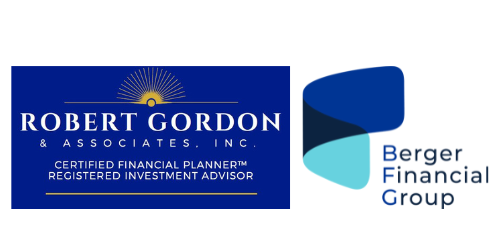You Don’t Need A Financial Plan – You Need Financial Planning
Submitted by Robert Gordon & Associates, Inc on July 19th, 2017
What’s The Difference?
When I first start talking to a new client, I often discover that they have a financial plan. At some point in the past, they worked with a financial planner who helped them build a plan that was probably a good one for their needs at that time. But then… The plan sat on the shelf. The details of the plan were not fully executed. More importantly, priorities changed. But the plan did not keep up.
This is why I say – you don’t need a financial plan, you need financial planning. If you are to achieve your wealth creation goals to support your lifestyle, loved-ones and retirement, financial planning cannot be a one-time event.
A football analogy
What would you think of a football team who gathered all of the best players, made a game-plan and then on game-day said to their quarterback – “we’re going to have you sit this one out today?” What do you think the chances are that such a team would win?
This is exactly like a financial plan versus financial planning. For families to achieve their wealth goals, a plan is the right starting point. But the problem is that most plans don’t get fully executed because there is no quarterback actually managing the game toward a successful outcome.
Sound familiar?
Does this sound like your family? Do you have a financial plan that has not been updated in several years? Do you know where you are in the plan versus your goals? Do you have someone reviewing the progress you’ve made against your plan?
Key differences
A financial plan is the blueprint or the foundation of the financial planning process. Think about the last 24 months of your life. How many things have changed in those 24 months?
What has happened to your investments? Have they grown? Have they diminished? Usually this is what people think about when they consider their financial plan. If you work with multiple investment managers, who is coordinating the overall asset allocation strategy? Is the combined asset allocation aligned to achieve your financial goals?
People often think of the performance of their investments as the critical indicator of their wealth. But this is a woefully inadequate picture of financial planning.
Think about your loved ones. How has their situation changed in the last 24 months? What has happened with children and grand-children? Have there been births, deaths, divorces, marriages, adoptions, graduations? Have your estate documents been updated to reflect these changes?
Think about your tax burden. Has it changed either because of new or updated tax laws or because of changes in your financial situation? Have you taken advantage of all of the opportunities available to you to mitigate taxes?
Think about your assets such as real-estate, automobiles, collectibles or other valuable items. When did you last review insurance policies to ensure these are all fully protected? Are you paying too much for insurance or are your assets under-insured?
Think about retirement. How confident are you that the plan you have in place today – the plan you are actually living everyday, not the one sitting on the shelf – will actually help you achieve your goals?
Next steps
I recognize that what I am suggesting is not an easy thing to do. Keeping everything up to date and monitoring progress against goals, well that takes a lot of expertise and time and a coordinated team. But it’s worth it.
Those who have a financial quarterback playing the game with them every day are much more likely to win than those who ask their financial quarterback to show up every few years. If you or someone you care about could benefit from a thorough analysis of their financial situation, I’d appreciate the opportunity to have a conversation with them.

